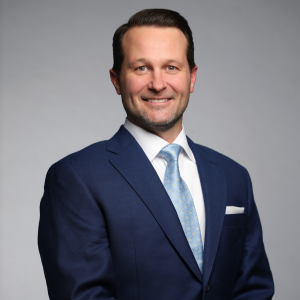Can Administrators’ Leadership Style Influence Quality of Care?
| BY CHRISTINA A. HASEMANN, PHD, RD, L/CDN Can administrators’ leadership style influence quality of care? In quest of the “authoritarian” administrator and the training needed to become one |
| Quality of care in the nursing home industry is of paramount concern, not only to current consumers and their families, but to potential consumers and industry quality advocates. Baby boomers will be requiring the services of these facilities in the near future, and they will be expecting and demanding high quality. A growing percentage of boomers have already been through the nursing home admission process with a parent or grandparent. They are tuning into media reports with a keen ear, and they are fervently checking online information for nursing home inspection results and report cards. They are more savvy consumers than the previous generation, and their message to us is very clear: Quality matters. True determination of quality of care can be elusive, even with the best assessment tools. Efforts to mandate improved quality have focused largely on the facility survey process and the penalties imposed for “deficiencies.” It is necessary to acknowledge, though, that while copious regulations exist to mandate quality in the industry, regulation alone cannot promote or guarantee it. Nearly all administrators in a recent study I conducted of leadership in Central New York State nursing homes echoed this view. Serious quality-of-care issues still exist, they said, despite the strong regulatory framework. Billions of dollars are spent annually in the quest for quality of care-and nearly all of this is spent to enhance and enforce the regulatory process-despite multiple studies showing that increased regulation has not improved quality, or has done so only minimally, at best. The time has come to shift the focus toward encouraging high quality, instead of attempting to deter poor quality, and to investigate factors that may positively influence quality of care. In my recent study, I learned that nursing homes that do offer quality care have something that sets them apart from the ones that don’t: a dynamic and effective leader. While leadership style cannot be said to strongly influence quality of care based on data from a single study, this study indicates that it appears to influence positive survey outcomes, which is at least an indirect measure of quality. Leadership style, particularly an authoritarian style, appears to be a strong determinant of organizational success. What do I mean by “authoritarian”? In the formal sense, this style combines the “delegating” and “telling” leadership styles, as scored by the LEAD inventory based on Hersey and Blanchard’s Situational Leadership model (a concept acknowledging that leadership does not exist in a vacuum but is a function of the leader, the followers, and the situation/circumstances). This authoritarian leader is not the stereotypical overbearing, dictatorial ruler, but someone who relates to followers both flexibly and decisively. This leader listens to what employees have to say and then analyzes it along with other information to make a firm, impartial decision. By contrast, the “nonauthoritarian” leader relates to followers on a much more personal level, not only seeking their opinions, but striving to please them with the resulting decision, which may or may not be best for the facility but will at least keep staff happy and the boat from rocking. Since the Central New York study revealed a positive association between the authoritarian style, as described here, and higher quality of care, it would behoove the nursing home industry to review the education and training requirements of administrators to see how well they prepare them for this approach. Greater emphasis might fall on enhancing the administrator-in-training (AIT) process, for example, to give newcomers hands-on experience in leadership, with emphasis on authoritarian methods, prior to their first full-time appointments in the field. The importance of this was reflected by several administrators who participated in this study, who described their AIT experience as a “weak” form of preparation, citing as a principal cause the leadership style of those they worked under at the time. Perhaps if there were more stringent prerequisites for administrators doing the mentoring, or if candidates worked with multiple administrators in a rotating fashion during this phase, the chance to experience an optimal leadership style might be more readily available. All administrators who spoke of their training were emphatic that administrator training needs to be “longer” and “better,” and that the on-the-job training component is, in the words of one, “the most important…more important than the four or six years of education prior to it.” Some echoed the comment that “what is learned from a textbook or a regulation book is irrelevant,” and that “real-life day-to-day experiences in this position are the only way to learn, motivate, and carry out quality of care in the facility.” All administrators who participated in the study felt that additional education and tougher credentialing standards, in themselves, would accomplish nothing with respect to improving quality of care. Nearly all echoed the sentiment that the “standards are not the only measure of quality” in the industry. A few went on to say that the pursuit of quality in their facilities was “a blend of passion and common sense,” a “mixture of being tough when you need to and lightening up when you don’t,” and a “recipe that includes a lot of things besides education and a regulation book.” In line with this, nearly all administrators addressed the recent decrease in the number of continuing education hours that are required to maintain an administrator’s license in New York as a positive move, in that it freed up more time for them to do their jobs. “I’m not sitting in a seminar that preaches theory, not practice,” said one. One administrator was particularly adamant about additional education having potentially little effect on quality of care. She was quick to point out that “quality of care has much more to do with the frontline people than it does with administrator and his/her education level,” that “further education would turn even more potential administrators away from the field,” and that additional regulation and continuing education “would make an already difficult job more difficult.” Leadership style has not been studied extensively in this arena, and more research needs to be done to determine if the results of my study are to be generalized nationally. Nevertheless, it is of particular consequence to further determine whether an authoritarian style of leadership would be most beneficial during these difficult times for long-term care. If a change in the education and training of administrators toward more experiential and targeted mentoring approaches would be a cost-effective way to improve quality, then we need to pursue it. This may mean that each state will need to reevaluate its criteria for administrator licensure and for recertifying those already in the field. Continuing education focusing on authoritarian leadership styles and mentoring programs might be of benefit; continuing enhancement of regulation and educational criteria might not. It is of some urgency to the well-being of long-term care that these possibilities be explored. |
| Christina A. Hasemann, PhD, RD, L/CDN, is a registered dietitian, President/CEO of NY-Penn Nutrition Services, Inc. (Binghamton, New York), and adjunct instructor at Broome Community College and Morrisville State College (Norwich Campus). For further information, write her at NY-Penn Nutrition Services, Inc., 74 La Grange Street, Binghamton, NY 13905-1718; phone (607) 770-6221; or e-mail nypenn@pronetisp.net. To comment on this article, please send e-mail to hasemann0804@nursinghomesmagazine.com. For reprints in quantities of 100 or more, call (866) 377-6454. |
I Advance Senior Care is the industry-leading source for practical, in-depth, business-building, and resident care information for owners, executives, administrators, and directors of nursing at assisted living communities, skilled nursing facilities, post-acute facilities, and continuing care retirement communities. The I Advance Senior Care editorial team and industry experts provide market analysis, strategic direction, policy commentary, clinical best-practices, business management, and technology breakthroughs.
I Advance Senior Care is part of the Institute for the Advancement of Senior Care and published by Plain-English Health Care.
Related Articles
Topics: Articles , Facility management , Leadership , Staffing











